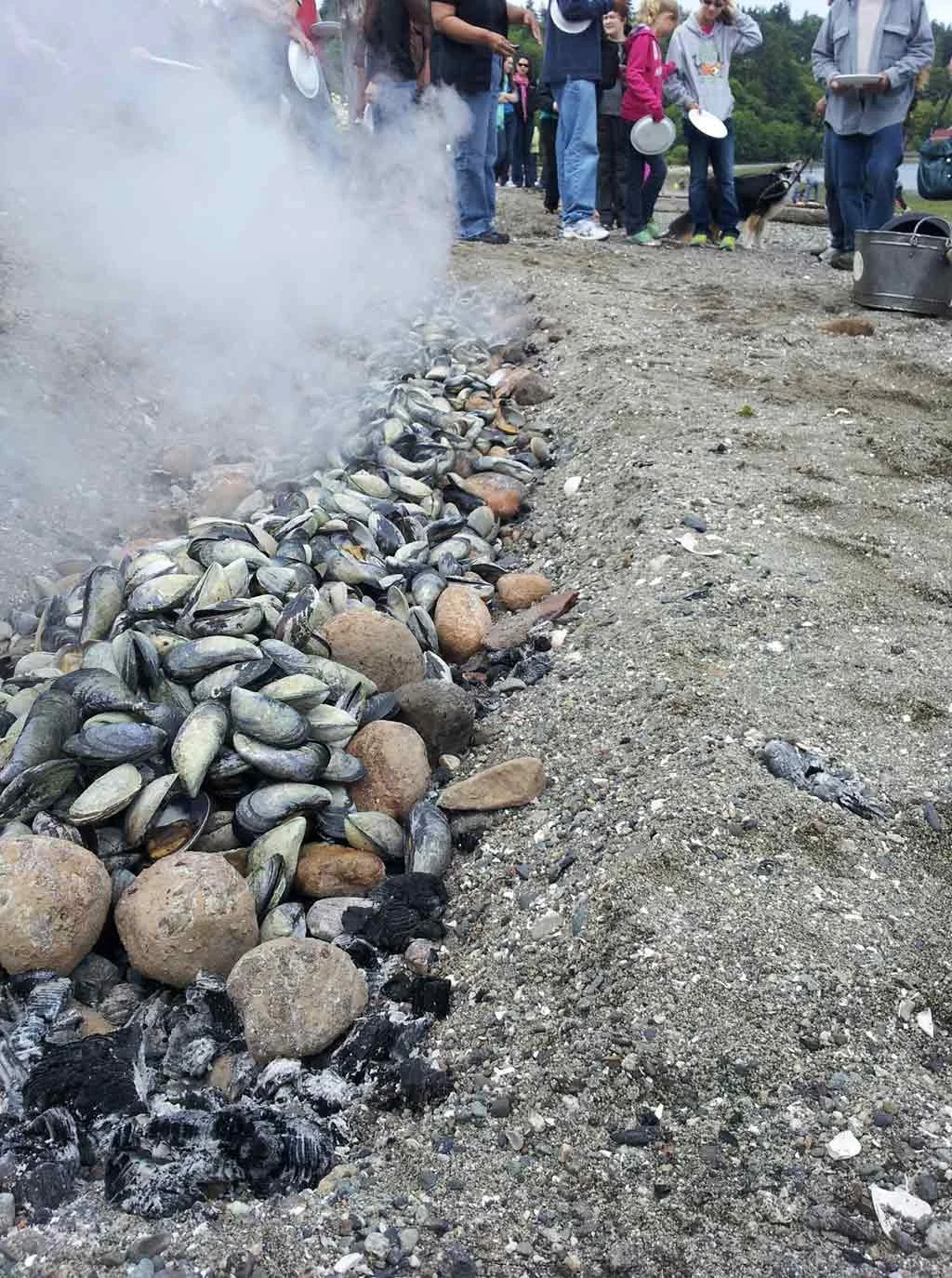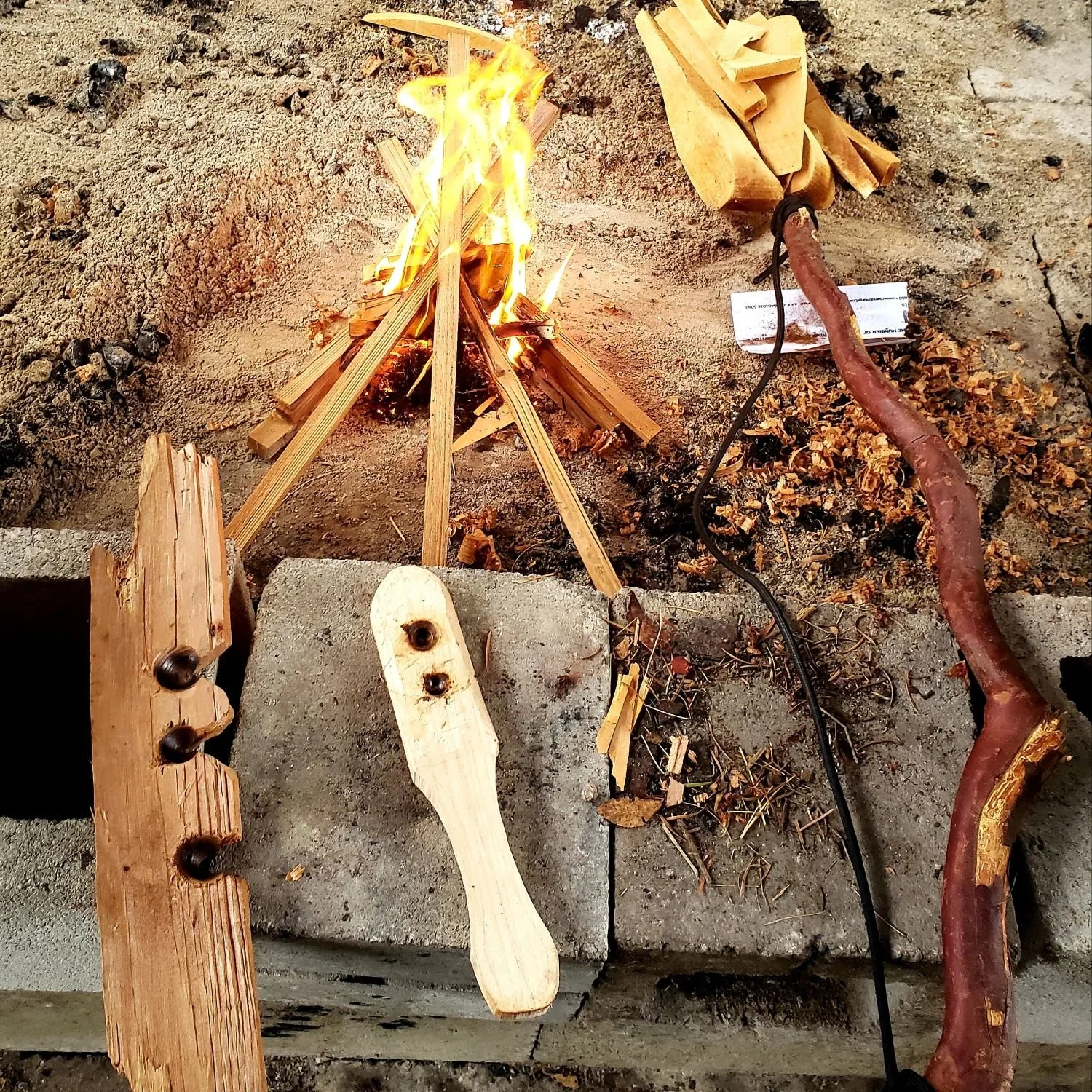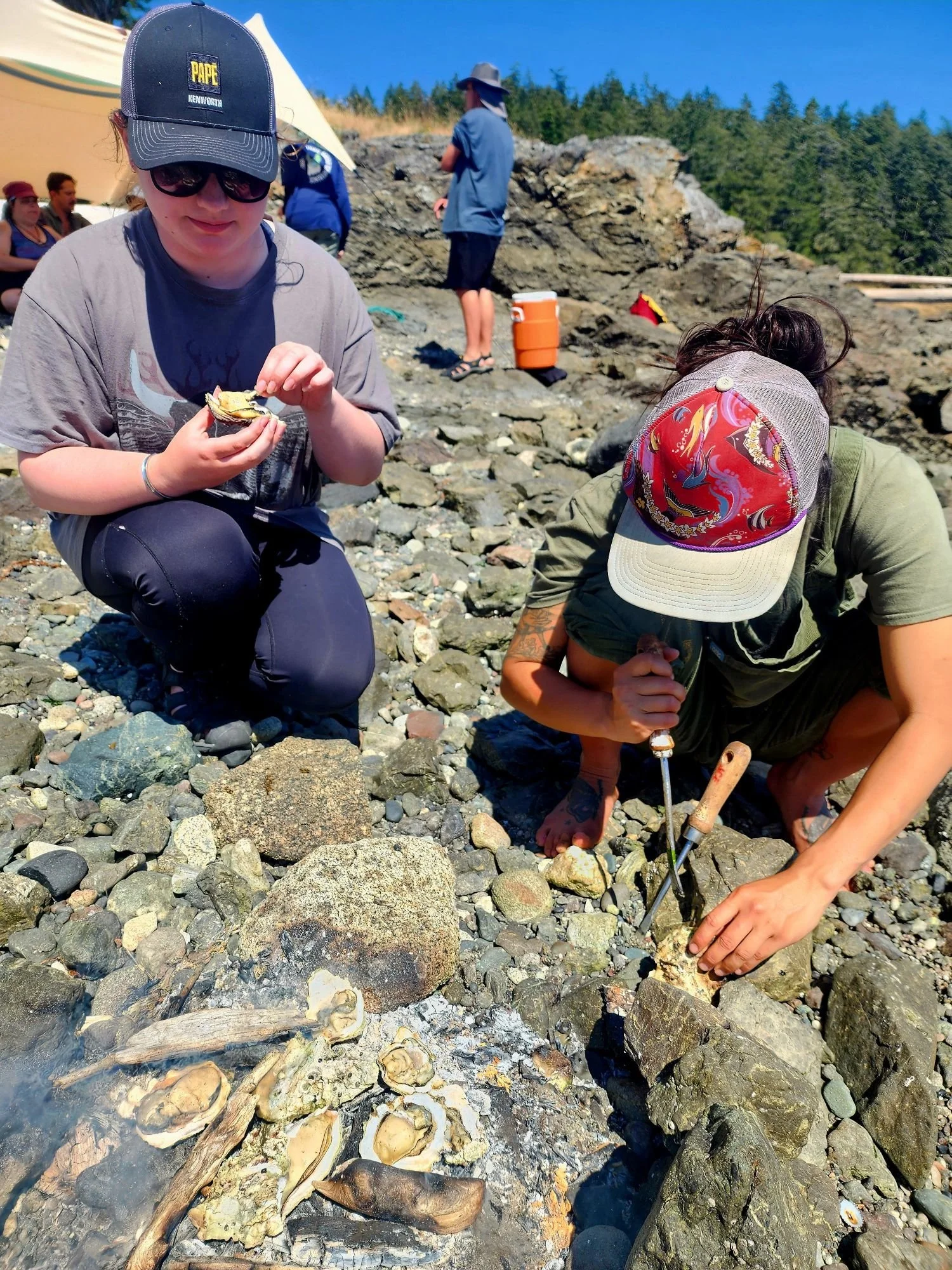
FIRST FOODS
Restoring Traditional FOODS
Traditional foods connect us to our ancestors, our land, and our community. At the Coast Salish Youth Coalition, we are dedicated to sustaining these cultural practices and ensuring that future generations have the knowledge and skills to carry them forward.
Through hands-on experiences, youth learn how to cultivate, harvest, prepare, and honor traditional foods, fostering an understanding of their cultural significance and the ecosystems that support them.
A housepost of our program is the camas bake, where youth, families, and community members gather to celebrate and honor this important food source. Participants learn the traditional methods of cooking camas while sharing and practicing a variety of traditional skills, including plant identification, crafting and making, food preservation, and traditional games.
The Coast Salish Youth Coalition integrates traditional foods and practices into all aspects of programming. Whether gathering shellfish, cooking fish, foraging for berries, or identifying edible plants, these activities teach youth the importance of food sovereignty and environmental awareness. Our ancestors left us foods that are all around us if we know how to care for them.
Key activities include:
Annual Camas Bake: A community gathering focused on harvesting, preparing, and cooking camas while sharing traditional skills.
Food Harvesting: Learning traditional harvesting techniques for shellfish, berries, and other culturally significant foods.
Plant Identification: Teaching youth how to identify native plants.
Cultural Cooking: Preparing meals using traditional methods such as pit cooking, roasting, and smoking. Also, learn and practice camp cooking.
Traditional Games: Engaging in activities that emphasize health, coordination, and skill with traditional tools, promoting physical fitness and connection to cultural practices.
Cultural Knowledge: Engaging with elders and culture bearers to learn the stories and practices associated with traditional food gathering and preparation.
This knowledge can inspire a deep respect for the land and its resources. Traditional foods inspire and empower youth to become stewards of their cultural heritage and environment.












